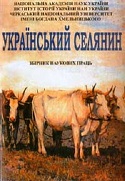БАЗАРНА ТОРГІВЛЯ ЯК СКЛАДОВА МАТЕРІАЛЬНО-ЕКОНОМІЧНОГО ФУНКЦІОНУВАННЯ СЕЛЯНСЬКОГО ДВОРУ В РОКИ «ВІДЛИГИ»
Main Article Content
Abstract
of trade marketplace as an important source of income
that Ukrainian farmers received from the sale of
products grown in their personal private households.
Based on materials of field researches the ways and
means of sales through trading marketplaces are
analized Attention is paid to the characteristics of the
factors that determined the activity of peasants in the
market trade. It is proved that the personal
entrepreneurship of the peasantry contributed to the
improvement of the welfare of peasant famr Eilies.
Purpose. Tre purpose of research is to study the
sources of Ukrainian peasant families’ budgets, that is
their profits from market traide as the part of material
and economical functioning of a peasant household in
the period of Khruschov’“thaw” (1953 – 1964).
Results. After the death of J. Stalin the state had
weakened total economic financial press on the peasant
– collective farmer. Due to the private enterprising of
peasants there appeared improvement of their families’
material maintenance. Ukrainian peasants began to
expand actively the ways of getting extra profits from
their private plots of land. Such an activity gave an
appreciable result. The collective farmers started more
and more take care of their own interests, their own
household. Since then they often pretended or even
ignored the work in the collective farm.
Among the sources of profits which Ukrainian
peasants got from realizing of products grown on their
private households the sail them in the markets was the
most important. In the USSR they were called collective
farms’ markets (they had another name among the
population – bazaars. Some law normative acts adopted
by the state in the context of the new course of the
agrarian policy, initiated by Khruschev, favoured the
activation just such a way of realization of peasant
products.
The notable tendency of 1950-1960-ies was the
realization of products from the private household
beyond the borders of their own region with the aim of
getting maximum profit. Peasants went to bazaars in
big cities and industrial centers of Ukraine (Kyiv,
Odessa, Donetsk, etc.) as well as of other Union
republics. Having got more money for their agricultural
products then they could get on their local markets, the
peasants bought commodities in short the lack of which
was in their rural location as well as in district and
even in regional centers.
Profitable conditions for selling agricultural
products determined rather remote routs that spared
much farther than the borders of the republic. Most
attractive and, accordingly, popular was the capital of
the Soviet Union – Moscow though the production was
brought to Belarus, other Russian cities, especially to
the North, as well. Respondents’ memouirs who took
part in the field researches are full of the information
about the fact that peasants transported production of
long-term storage (dried fruit, prunes, walnuts,
sunflower seeds, dried fish, etc.). The peasants preferred
to make their far travels in times when active field works
have been finished. The important factor was they had
been attached to their collective farms, and to get the
authority permittance for travel in winter time was much
more real than in any other season.
Conclusion. Peasants’ business initiation gave
them the possibility to get extra income realizing
agricultural production that they had grown in their
own households by means of bazaar trade. Through the
number of the objective facts, the Soviet system was
forced yet to permit the bazar trade though it considered
it as the survival of capitalism that had no place in the
socialist society .But just the bazar trade was the
essential source of filling budgets for collective farmers
and their families.
Article Details
References
Лисак В. Особисте присадибне господарство в
сукупному прибутку української селянської родини в
-1960-х роках. Гілея. 2009 Вип. 20. С 105-107.
Кагальна М. Матеріальне забезпечення селянства
УРСР у період хрущовської «відлиги» крізь призму
повсякдення (1953–1964 рр.). Архіви України. 2013. № 2.
С. 70-78.
Кузьменко В. Торгівля на колгоспному ринку в
повсякденному житті сільських жителів УРСР в 1940–1960-
х роках (за матеріалами Чернігівської області). Етнічна
історія народів Європи. 2016. Вип. 49. С. 111-119.
Скворцова І. Особисті підсобні господарства у
Вінницькій і Хмельницькій областях на завершальному етапі
радянської доби (60-80-ті рр.). Вісник Кам’янецьПодільського національного університету імені Івана
Огієнка. Історичні науки. 2014. Вип. 7. С. 474-483.
Україна: Хроніка ХХ ст.: Роки 1946 – 1960: у 2 ч. /
редкол.: В.А. Смолій та ін. Київ : Ін-т історії України НАН
України, 2005. Ч. 2: 1953–1960. С. 287-613.
Лінійчук Я. Важливе джерело піднесення народного
добробуту. Київ : Видавництво політичної літератури
України, 1967. 169 с.
Спогади Корнієнко Антоніни Петрівни, 1938 р. н.,
мешканки с. Іванківці Знам’янського району
Кіровоградської області. Поточний архів Науководослідного інституту селянства. Ф. 1. Матеріали польових
досліджень. Справа 341/993. – 1 арк.
Поточний архів Науково-дослідного інституту
селянства. – Ф.1. Матеріали польових досліджень. – Справа
/979. Спогади Базевлюк Світлани Володимирівни, 1943
р.н., мешканки с. Руська Поляна Черкаського району
Черкаської області. 1 арк.
Клок В. Розвиток споживчої кооперації України в
умовах десталінізації (1956-1965 роки). Вісник Львівської
комерційної академії. Серія: Гуманітарні науки. 2013. Вип.
С. 117-127.
Кузьменко В. Дефіцит в повсякденних практиках
сільських жителів УРСР в 1950–1960-х роках (за
матеріалами Чернігівської області). Етнічна історія
народів Європи. 2017. Вип. 53. С. 130-134.
Соціальні трансформації в Україні: пізній сталінізм і
хрущовська доба. Київ : Інститут історії України, 2014.
с.
Поточний архів Науково-дослідного інституту
селянства. Ф. 1. Матеріали польових досліджень. Справа
/024. Спогади Ковилова Володимира Івановича та
Ковилової Ольги Василівни, мешканців с. Рижівка
Уманського району Черкаської області. 2 арк.
Поточний архів Науково-дослідного інституту
селянства. Ф. 1. Матеріали польових досліджень. Справа
/004. Спогади Санжарівського Олександра
Григоровича, мешканця с. Ташлик Смілянського району
Черкаської області. 1 арк.

